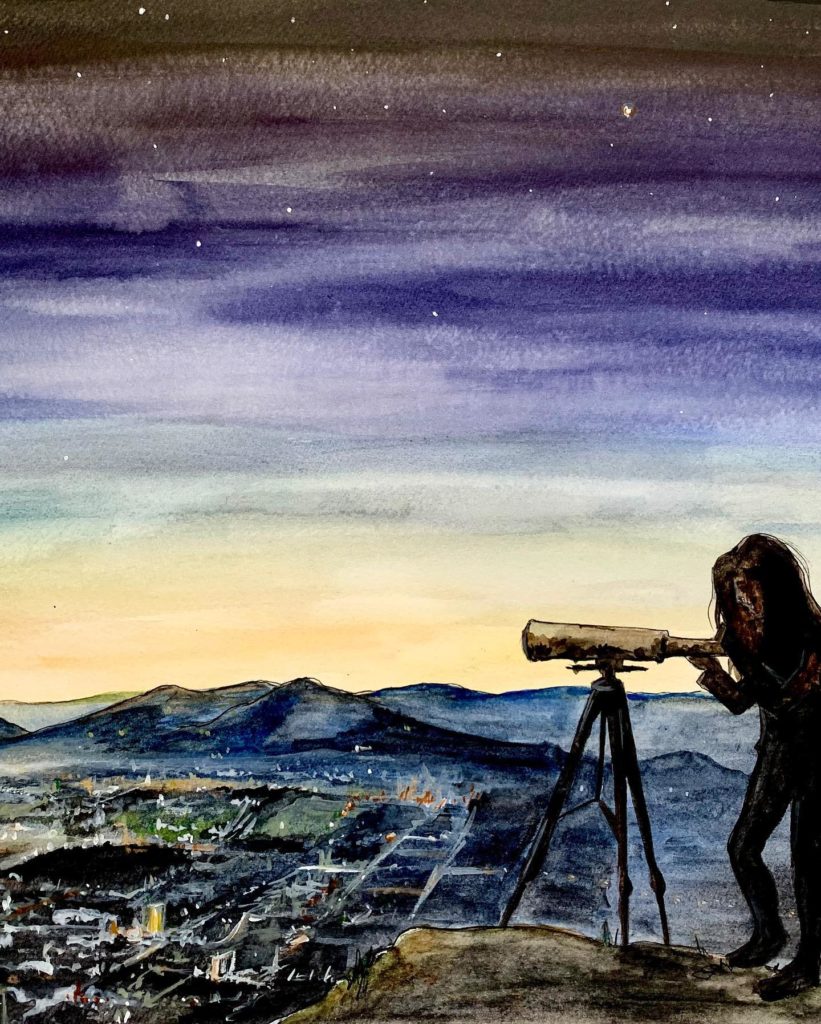Introduction to The Science of Human Behaviour
Read this series of The Science of Human Behaviour if you are curious to navigate yourself through the jungle of human motivations, behaviour and decision-making. Why do we do the things we do and why is it always the others that seem to show irrational behaviour? I tackle these and other questions in this theme and – as always – I am very curious about your own experiences and how these scientific insights impact your life!
Personally, I love applying what I learnt during my PhD in the Social Sciences to my own daily (private) life. As my friends would confirm, I am definitely not a hypocrite – while doing research on others, I do turn myself into a lab rat on nearly a daily basis and ask myself the same questions I ask my human subjects.
This curiosity is what actually lead me to study human behaviour – despite starting off in a totally different field: Astronomy. Since I was 5 years old, I wanted to discover the most fundamental laws of the universe. During my Masters in astronomy, however, I became disillusioned with the prevailing publish-or-perish system in science. So I decided to go meta and study that system (and the humans; the researchers) performing science in that system. From 2015 to 2021, I was working on my PhD in this field; I studied the reflexivity of performance measures on human behaviour. Or in other words, to quote a friend, my topic was about the reasons why I did not pursue a PhD in Astrophysics.

The switch from a natural science to social science was not easy, I have to admit. The schools of thought are often very different and it took me many fights and years of research to make peace with these different view points.
However, this journey has brought me more knowledge on human behaviour than my hungry mind could have every hoped for – and I even had the privilege to get paid for it! I studied topics, such as: Motivation – what effects do different forms on motivation have on our behaviour and emotions? Decision making: how do we make decisions, are they rational or irrational and how do situational circumstances affect those decisions? Realism versus constructivism: Is there a reality, independent of our perception or is everything we perceive merely a social construct*?
And the best discovery of my life (apart from my boyfriend and best friends, of course 😉 ) was the theory of synergetics. This meta theory of self-organisation and transformation processes bridges the gap between the natural and the social sciences. The understanding of how social phenomena emerge from individual behaviour and how behaviour emerges from the bio-chemical dynamics in our brain responding to the external input, has finally given me some peace of mind. Synergetics delivers answers for many phenomena that are not causally explainable in social science and shows how the physics of our bodies relate to social constructs. Synergetics is the ace up my sleeve, which enables me to stay true to the natural scientist’s realism *and* the social scientist’s constructivism.
I personally have found all these topics fascinating and the research I came across and conducted myself has given me fundamental insights in my own and other people’s behaviour. Not only because my salary was paid by your taxes, but most importantly, because my scientific heart loves sharing interesting information, I am trying my very best to share these insights with you in a readable** way.
This special theme The Science of Human Behaviour consists of the following mini-series:
Table of Contents
- Introduction to The Science of Human Behaviour
- Motivation: Research shows that there are 5 different types of motivation. Especially the aggregate forms – autonomous vs. controlled motivation – have a different impact on our well-being.
- Decision Making: Rational Choice Theory explains how we make our 35000 daily decisions and how social phenomena arise from our individual behaviour.
- Episode 1: From situation to action
- Episode 1.1: Institutional Norms
- Episode 2: Taking action
- Episode 2.1: Excursion: Deviant Behaviour
- Episode 3: Emergence of Social Phenomena
- Self-Organisation & Transformation: Synergetics – the meta-theory of order transitions – connects the natural sciences with the social sciences and explain what we can change and what we cannot.
- Synergetics-Dictionary
- Episode 1: Physical principles and basics
- Episode 2: The relevance of transformation
- Episode 3: The Agile Organisation
- Episode 3.1: The Synergetic Navigation System (SNS)
PS: If you’d like to read more on my own research, here is a list of my published work & essays.
* Yes, this last question was the main reason for my fights with social scientists – after all I have the heart of a natural scientist 😉** As you will most likely discover from the references I use in this theme, scientific papers are, unfortunately, not written in a reader-friendly way.
Written by Julia Heuritsch | Last edited: 26th March 2024